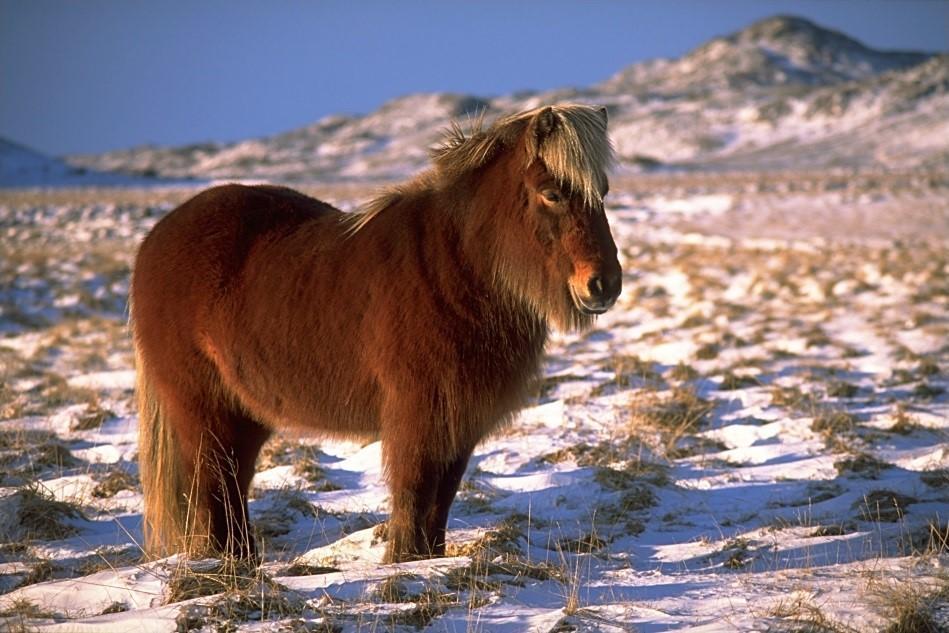Winter can be a source of worry for many horse owners, especially those with older horses. Follow these tips to ensure your horse is prepared for winter. A fall wellness exam is very helpful to make sure your horse has no problems that need to be addressed before winter such as arthritis, Cushing’s disease, or dental issues. Here are a few tips to keep in mind:
- Start monitor your horse’s winter coat growth in September.
- Be sure to give the last dewormer after a few hard frosts to kill stomach bots.
- You horses’ weight can be a big concern going into winter. They should be a 5-6 on the Body Condition Score Scale and should maintain that weight through the winter.
- Supplement an extra 1.5 – 2 pounds of hay for every 10 degrees the temperature drops below 45 F. Older horses may require supplemental feeding with hay cubes, pellets, or beet pulp.
- Most healthy horses do not need a blanket unless it drops below 0-10 degrees. However, horses that are body clipped and stand in a stall without moving much do need a blanket. Senior horses with a BCS of less than 5 benefit from having a blanket as well because they have less muscle mass and fat stores. If you do blanket your horse, check the blanket daily for proper fit, make sure it is clean and dry, and look at your horse underneath the blanket to make sure they are maintaining their weight.
- Hoof care is extremely important in the winter for horses that live outside. Horses that aren’t ridden in the winter often benefit from going barefoot. Horses that need shoes because they are ridden through the winter could benefit from shoes with extra traction and may need modifications so that snow does not pack in the sole. Picking your horse’s hooves regularly in the winter is key for maintaining hoof health.
Prepare your facilities
First, make sure that whatever structure your horses live in can support snow. Drainage is very important in the winter so that water does not pool and freeze, causing dangerous patches of ice to form. Your facilities should have the proper electric supply for your needs. Consider a generator in case of power outages if you have well water or use heated water buckets. Making sure your horses have access to plenty of fresh unfrozen water is vital so that they do not become dehydrated or get impaction colics. Insulate pipes so that they don’t freeze and drain hoses after each use to prevent freezing. Consider using heated stall buckets, or insulate them so the water doesn’t freeze. Adding electrolytes to encourage horses to drink is also a good idea.
Please don’t hesitate to ask questions under “comments” here, or call us at 963-2371

